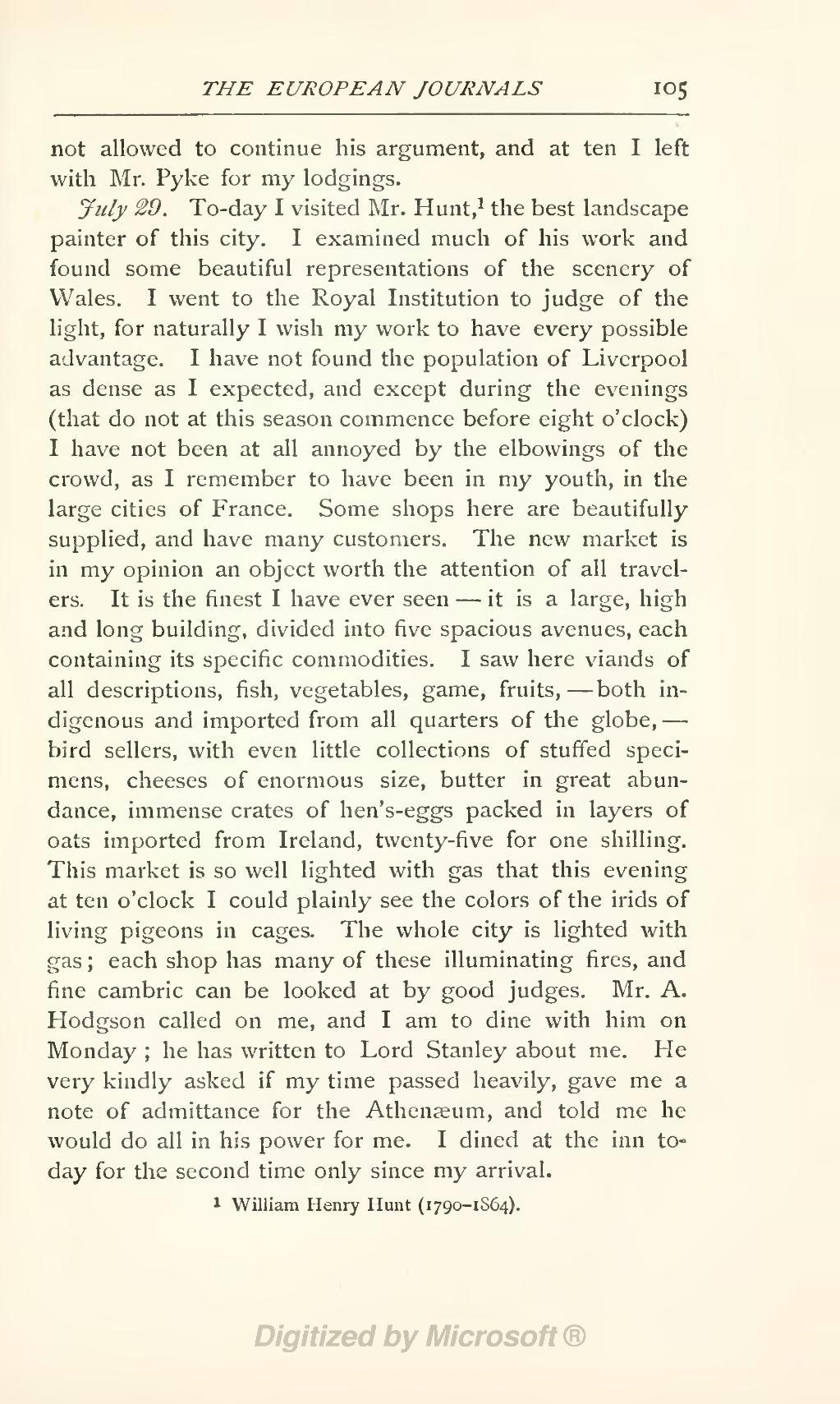not allowed to continue his argument, and at ten I left with Mr. Pyke for my lodgings.
July 29. To-day I visited Mr. Hunt,[1] the best landscape painter of this city. I examined much of his work and found some beautiful representations of the scenery of Wales. I went to the Royal Institution to judge of the light, for naturally I wish my work to have every possible advantage. I have not found the population of Liverpool as dense as I expected, and except during the evenings (that do not at this season commence before eight o'clock) I have not been at all annoyed by the elbowings of the crowd, as I remember to have been in my youth, in the large cities of France. Some shops here are beautifully supplied, and have many customers. The new market is in my opinion an object worth the attention of all travelers. It is the finest I have ever seen—it is a large, high and long building, divided into five spacious avenues, each containing its specific commodities. I saw here viands of all descriptions, fish, vegetables, game, fruits,—both indigenous and imported from all quarters of the globe,—bird sellers, with even little collections of stuffed specimens, cheeses of enormous size, butter in great abundance, immense crates of hen's-eggs packed in layers of oats imported from Ireland, twenty-five for one shilling. This market is so well lighted with gas that this evening at ten o'clock I could plainly see the colors of the irids of living pigeons in cages. The whole city is lighted with gas; each shop has many of these illuminating fires, and fine cambric can be looked at by good judges. Mr. A. Hodgson called on me, and I am to dine with him on Monday; he has written to Lord Stanley about me. He very kindly asked if my time passed heavily, gave me a note of admittance for the Athenæum, and told me he would do all in his power for me. I dined at the inn to-day for the second time only since my arrival.
- ↑ William Henry Hunt (1790-1864).
